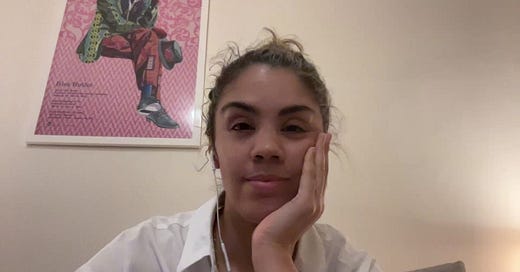[Author’s Note: I normally write these articles myself. This article was generated by AI from the video transcript using examples of past articles I’ve written.]
The Dark Arts of AI: Exploring Our Psychological Boundaries
As we continue to explore the intersection of humanity and artificial intelligence, I've been thinking about what I call "the dark arts of AI." To be clear, I'm not talking about using AI for malicious purposes. Rather, I'm referring to applications that might have good intentions behind them but often provoke a visceral, uncomfortable response from many people.
Digital Resurrections: When AI Brings Back the Deceased
One of the most fascinating and controversial applications involves creating AI versions of deceased loved ones. This concept isn't new, we've seen celebrities experiment with it, and several companies now offer these services.
People's reactions fall into two distinct camps. Some are drawn to the emotional connection, the possibility of speaking again with someone they've lost. Others find it deeply unsettling, like when Kanye West created a hologram of Kim Kardashian's deceased father, which sparked significant negative reactions online.
This boundary fascinates me from a psychological perspective. Many of us might repeatedly listen to a loved one's voicemail after they pass, but there seems to be an invisible line crossed when we upload that voicemail into an AI system along with personal details to enable two-way conversations.
Some cite respect for the deceased, arguing they wouldn't want to be represented this way. But I believe something deeper is at work in our psychology. I'm trying to understand why we feel this technological resurrection crosses a boundary, why transforming something so fundamentally human into a technological experience creates such discomfort.
AI Companions and Intimate Relationships
Another area in the "dark arts" involves AI in intimate relationships. This isn't new either, years ago, I knew a researcher Rutgers who was studying sex robots and AI brothels on the side. I was even quoted in Rolling Stone discussing people's interactions with AI companions, particularly in romantic or sexual contexts.
I compared it to certain fast food habits, specifically how McDonald's sales figures suggest many more people eat there regularly than would admit to it in surveys. There's a similar disconnect with AI companions: people are often ashamed to acknowledge their use, yet the usage statistics suggest widespread adoption.
While I don't believe these AI relationships are as commonplace as pornography, I suspect they're far more prevalent than we realize simply because people won't publicly admit to using them.
AI Therapy: A Gateway to Acceptance?
What I find particularly interesting is the parallel with AI therapy. Despite legitimate ethical concerns around data privacy and potentially harmful advice, more people are openly sharing how they've "dumped trauma" into ChatGPT or Claude, often reporting positive experiences.
If people are becoming comfortable sharing intensely private, sensitive information with AI systems not specifically designed for therapy, it signals what might be happening in other private spaces, especially when people seek companionship, whether platonic or sexual.
The Future of Consumer Tech and Human Connection
For consumer tech companies, there's a significant opportunity here. Those who can create interfaces and fine-tune models that breathe what feels like a "human spark" into their AI will make a tremendous impact.
The psychological dynamics are fascinating: people might happily acknowledge getting help from an AI therapist while others would never admit it publicly. Similarly, many users of AI companions for emotional or intimate purposes keep it private, and there's a complex social psychology around using AI to connect with deceased loved ones.
Multiple startups are operating in these spaces, which means customers exist. The question becomes: what psychology drives people to treat these digital entities as nearly human? What creates that connection with something non-biological?
Even if your product isn't in these "dark arts" territories, there are valuable lessons here about creating genuine connection in digital experiences. In the Web 2.0 world, we called it "stickiness," but with AI, we're talking about something deeper: what creates authentic emotional bonds with non-biological entities?
Stay curious.
P.S.:
Fractional AI Product Strategist: I’m a fractional AI Product Strategist. If your business is building its first AI features, I have an AI audit offering to show businesses where their best (and worst) are opportunities to implement AI. You can reach out here.
Jumpstart Your AI Career: Jumpstart Your AI Career is BACK on Pearson/O’Reilly will be April 24. Register here.












Share this post